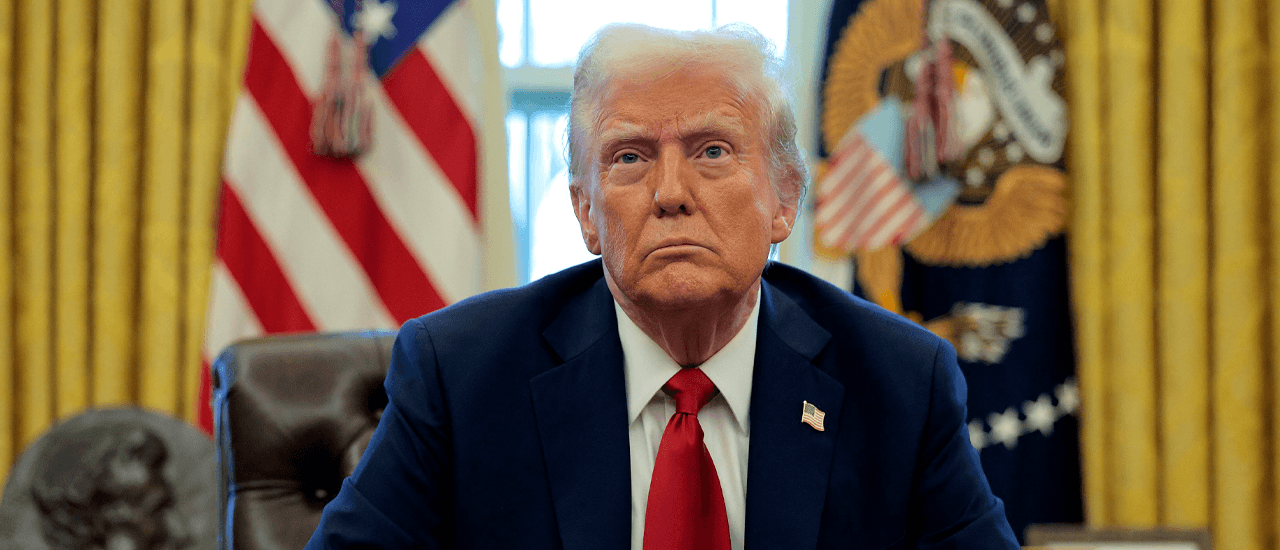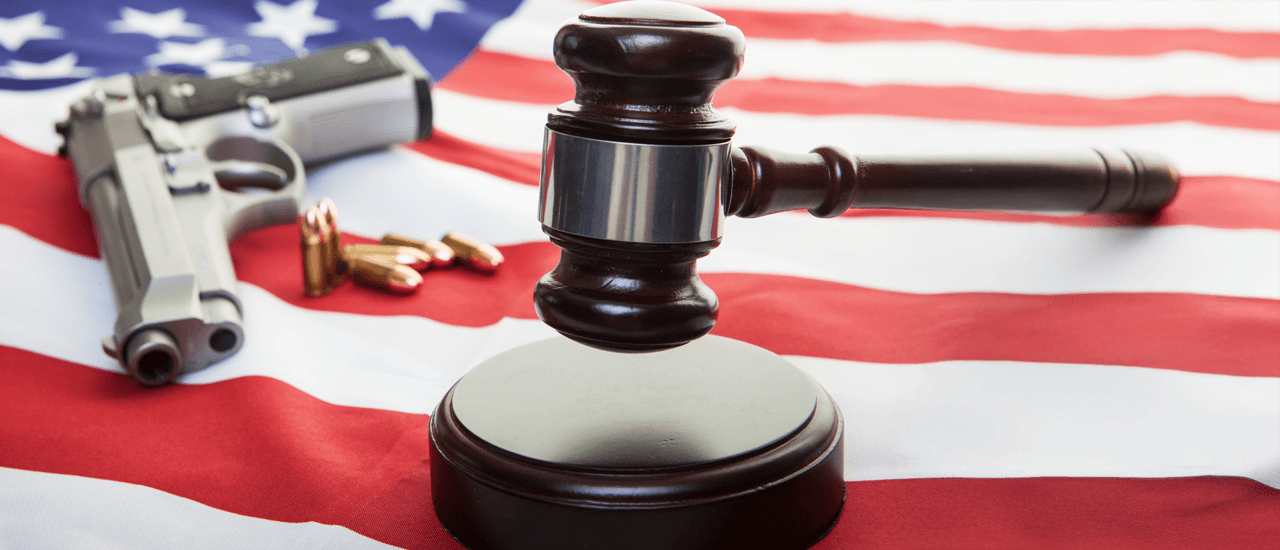The 47th President, Donald Trump, has declared his full support for imposing tariffs; beginning Tuesday, Feb. 4, 2025, a 25% tariff will be levied on imports from Mexico and Canada, with a 10% tariff applied to imports from China. Discussions have also emerged about eliminating the U.S. income tax in favor of tariffs, with Trump supporters embracing his proposal, while Democrats champion taxation—legalized theft that punishes productivity.

Trump’s invocation of tariffs is problematic from both an economic and ethical perspective.
Conversely, MAGA appears oblivious to the fact that tariffs disrupt economic order, elevate consumer prices, and shelter inefficiency by protecting domestic industries from competition. Both sides of the political spectrum cling to deplorable ideas aimed at sustaining a bloated and dysfunctional government. The primary understanding for both parties is that even if we accept the premise that the government’s only legitimate functions are confined to three essential points, a challenge remains in financing these institutions without infringing on the principles of voluntary exchange and property rights.
Income tax is unethical because it penalizes productivity and infringes on individual rights. It treats an individual’s earnings as government property, commandeering wealth by force rather than through voluntary exchange. In punishing success, it deters ambition and stifles innovation. A three-pronged government (police, military, and courts)—essentially a minarchist framework—exists solely to protect rights and should never confiscate wealth.
Tariffs are an immoral and ruinous method for financing government because they penalize free trade and infringe on individual rights. They fundamentally limit voluntary exchange, increase consumer costs, and protect unproductiveness and waste. Free trade benefits all parties, and the government has zero right to meddle. A free economy flourishes solely on voluntary action, not on barriers imposed by the government.
Ultimately, both funding ideas constitute government interference in the economy and do not serve as an appropriate method for financing a government of any size.
Many economists are strong opponents of tariffs and protectionism, favoring free trade and minimal government interference in markets. There are several reasons why this is the case.
- Tariffs Function as a Hidden Tax on Consumers
While tariffs are levied on foreign goods, their economic burden largely falls on domestic consumers. Higher import taxes raise prices, reducing consumer purchasing power and distorting market efficiency.
- Tariffs Lead to Retaliation and Trade Wars
If the U.S. imposed high tariffs to replace income tax, other countries would likely respond with their own tariffs, hurting American exporters. Historical examples of this type of trade retaliation (e.g., the Smoot-Hawley Tariff of 1930) showcase how protectionism led to economic contraction rather than growth.
- Volatility in Revenue Collection
Tariffs fluctuate with trade volumes, making government funding unpredictable. It is inconceivable that they possess forecasting techniques surpassing the market itself, except for those they manipulate.
- A Smaller Government Should Require Less Revenue
Many contend that the optimal strategy to diminish the reliance on international tariffs is to reduce the size of the government itself. It has long been argued that by curtailing government spending, a small, minarchist framework system can be maintained without resorting to tariffs.
Advocates of small government and proponents of the minarchist framework maintain that the only proper functions of government are those that safeguard individual rights—nothing more, nothing less. Any function of government beyond these is an infringement on individual freedom.

From the minarchist perspective only the police, courts, and military are needed to operate a small government based on voluntary principles.
This means that government should be strictly limited to three functions:
- The Police – To protect individuals from criminals who initiate force, fraud, or coercion against them. A proper police force exists only to apprehend those who violate rights and to enforce objective laws that protect life, liberty, and property.
- The Military – To protect the nation from foreign aggressors. A government must maintain the ability to defend its citizens against external threats, ensuring that no force—whether from an enemy army or terrorist group—can violate the rights of its people.
- The Courts – To provide objective arbitration in disputes, enforce contracts, and punish those who violate the rights of others. A proper judicial system is essential for maintaining the rule of law based on reason and individual rights.
If we accept the premise that government’s sole legitimate functions are the police, military, and courts—essentially a minarchist framework—the challenge becomes how to finance these institutions without infringing on the principles of voluntary exchange and property rights. For example, insurance companies already have a vested interest in crime prevention. They could underwrite security services to curtail losses from theft, fraud, and violence. Consumers purchasing property, business, or health insurance could, in effect, subsidize police and security forces through their premiums. Moreover, there exist several other ways to fund a small government through voluntary means.
Here are a few more possible free-market funding mechanisms:
- User Fees and Charges:
Government-provided services like courts, police protection, and infrastructure could be funded through direct user fees. Those who utilize these services (e.g., businesses requiring legal arbitration, and individuals needing police protection) would pay fees for their use. - Voluntary Contributions and Lotteries:
Milton Friedman and others have suggested that certain government functions could be funded through voluntary contributions and state-run lotteries, which are voluntary forms of revenue generation. - Flat or Consumption-Based Taxation:
Rather than a progressive income tax, some favor a flat tax or a consumption tax (like a sales tax) to fund essential government services while minimizing economic distortions. - Privatization of Government Services:
If feasible, many services traditionally provided by the government, such as policing or court arbitration, could be contracted out to private firms that operate efficiently under competitive conditions. - Minimal Land-Value or Pigouvian Taxes:
A minimal government could be financed through land-value taxation or taxes on negative externalities (such as pollution), which align with economic efficiency principles without significantly distorting incentives.
Trump’s path forward must prioritize free-market solutions over coercive taxes or tariffs, both of which distort economic equilibrium. Tariffs invite retaliation and inflate costs, while income taxes punish prosperity—each undermines voluntary exchange. Minarchist governance thrives when funded by voluntary mechanisms: user fees, privatized services, or consumption-based models. Only by rejecting forced extraction can a limited government uphold liberty, efficiency, and market-driven innovation without moral or fiscal compromise.
Taxes and tariffs are doomed by inherent contradictions: they manipulate markets, stifle competition, and rely on coercion. Free trade and voluntary funding—lotteries, competitive privatization, or fee-for-service systems—align with minarchist ethics, ensuring stable revenue without rights violations. For Trump, embracing market autonomy isn’t merely pragmatic; it’s the sole way to sustain a functional, minimalist state that honors property rights and fosters prosperity.
It should be noted, however, that steadfast anarcho-capitalists contend that this objective is also achievable without any government whatsoever, provided the world adheres to the non-aggression principle (NAP) and keeps a laissez-faire economy thriving. It should also be observed that Trump is already advancing the tariff idea, which is poor form when it comes to addressing what Biden did to the U.S. economy over the last four years. Tariffs will only exacerbate the situation.
免责声明:本文章仅代表作者个人观点,不代表本平台的立场和观点。本文章仅供信息分享,不构成对任何人的任何投资建议。用户与作者之间的任何争议,与本平台无关。如网页中刊载的文章或图片涉及侵权,请提供相关的权利证明和身份证明发送邮件到support@aicoin.com,本平台相关工作人员将会进行核查。




